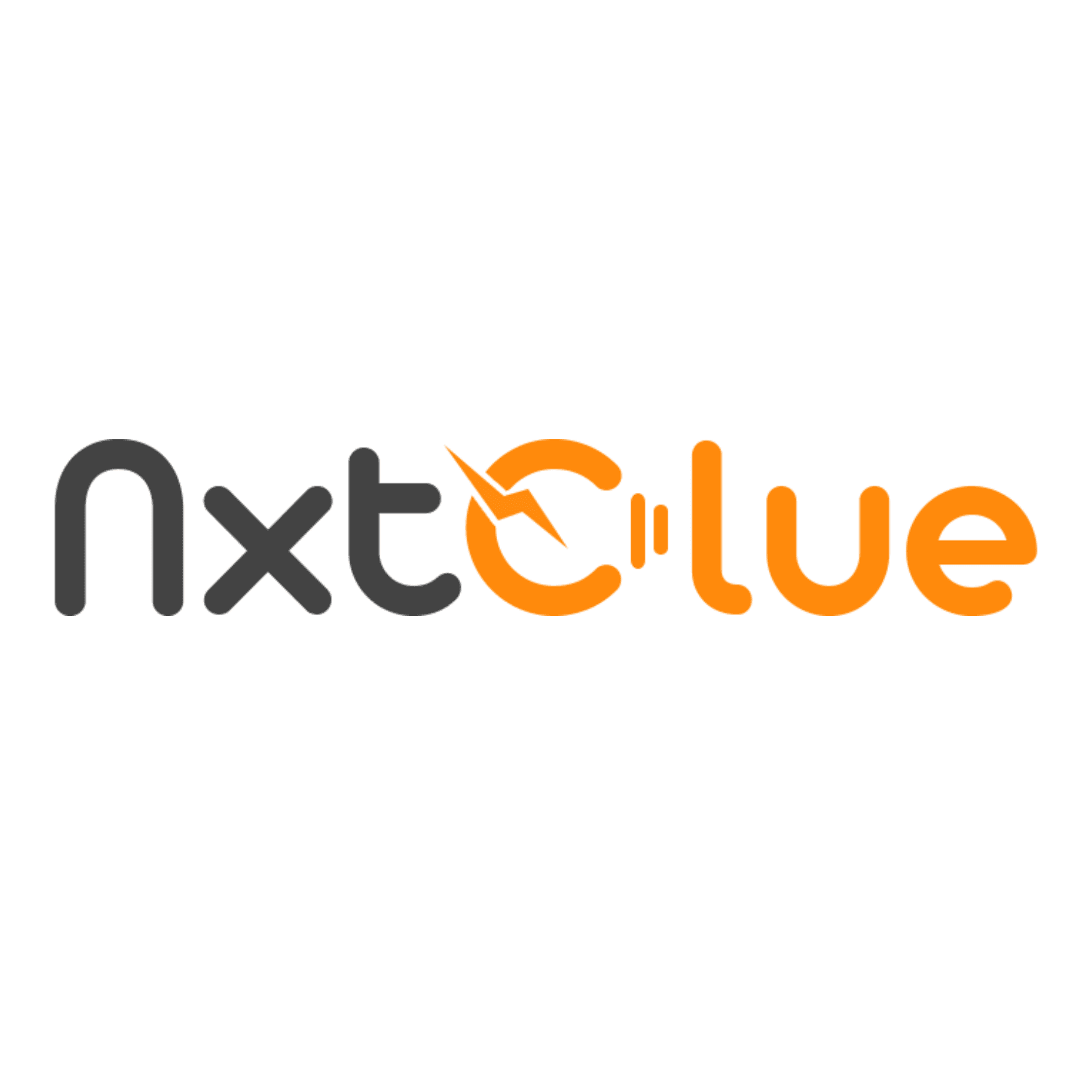Early Phase
Unlock Your Potential: How to Maximize Skill Development for Career Growth

Team NxtClue
|
8 mins
|
Sep 1, 2024

0:00/1:34
Don't have enough time to read?
Listen

Unlock Your Potential: Top Skill Development and Learning Opportunities for Career Growth
Imagine this: You’re a year or two into your first full-time job. You’ve nailed the basics, mastered the daily tasks, and are starting to feel confident in your role. But there’s a nagging thought at the back of your mind: Am I doing enough to grow? You know that to stay competitive and advance in your career, you need to keep learning and developing new skills. But with so many options—online courses, workshops, training programs—where do you start?
If this resonates with you, you’re not alone. Many early-phase professionals feel the same way. They’re eager to continue learning and growing but aren’t sure how to find the best opportunities or balance skill development with their day-to-day responsibilities. The good news is that with the right approach, you can effectively integrate continuous learning into your career and unlock your full potential. Let’s explore how to develop both hard and soft skills and seize the best learning opportunities available to you.
Top Skill Development Strategies for Career Growth
1. Identify Your Skill Gaps and Set Clear Learning Goals
The first step in any skill development journey is identifying your skill gaps and setting clear learning goals.
Solution: Conduct a self-assessment to identify areas where you excel and areas where you need improvement. Consider both hard skills (like technical proficiency or data analysis) and soft skills (such as leadership or communication).
Tip:
“Speak with your manager or mentor to get their perspective on your skill gaps and development areas. They can provide valuable insights and suggest skills that will help you advance in your current role or prepare for future opportunities.”
2. Leverage Online Learning Platforms for Flexibility
Online learning platforms have revolutionized skill development by making education accessible and flexible.
Solution: Explore online courses that align with your learning goals. Choose courses that provide practical, hands-on learning experiences and are taught by industry experts.
Tip:
“Allocate specific times each week for online learning. Treat this time as a non-negotiable commitment, just like a work meeting. Consistency is key to making progress in your learning journey.”
3. Attend Workshops and Seminars for Hands-On Experience
Workshops and seminars provide a unique opportunity for hands-on learning and networking with industry professionals.
Solution: Look for workshops and seminars relevant to your field or the skills you want to develop. Many organizations and industry associations host these events, both in-person and virtually.
Tip:
“Come prepared with questions or topics you’d like to explore during the workshop or seminar. Engage actively in discussions and activities to maximize your learning experience.”
4. Seek Mentorship and Coaching for Personalized Guidance
Mentorship and coaching are invaluable for skill development, especially when you need personalized guidance and feedback.
Solution: Identify potential mentors within your organization or industry who have the skills and experience you admire. Approach them with a clear idea of what you hope to achieve from the mentorship and how it aligns with your career goals.
Tip:
“Schedule regular check-ins with your mentor to discuss your progress, seek advice, and reflect on your learning journey. Be open to feedback and willing to learn from their experiences.”
5. Join Professional Associations and Networking Groups
Joining professional associations or networking groups related to your field is a great way to stay updated on industry trends, access exclusive learning resources, and connect with like-minded professionals.
Solution: Research professional associations or networking groups that align with your career interests. Join as a member and actively participate in their events, forums, and online communities.
Tip:
“Take advantage of any training resources or learning modules offered by the association. Engage with other members to learn from their experiences and share your own insights.”
6. Practice Continuous Learning on the Job
Learning doesn’t always have to happen outside of work. Many opportunities for skill development can be found right in your current role.
Solution: Seek opportunities to take on new projects, tasks, or responsibilities that challenge you and allow you to develop new skills.
Tip:
“Ask your manager for opportunities to lead projects, take on new challenges, or participate in cross-functional teams. This hands-on experience can accelerate your skill development and increase your visibility within the organization.”
7. Balance Hard and Soft Skills Development
While it’s essential to develop hard skills that are specific to your role, soft skills—like communication, leadership, and emotional intelligence—are equally important for career growth.
Solution: Allocate time and resources to develop both hard and soft skills. For hard skills, consider technical training, certifications, or advanced courses. For soft skills, attend workshops, read relevant books, or participate in activities that enhance your interpersonal skills, such as public speaking or conflict resolution.
Tip:
“Join a local Toastmasters club to improve your public speaking and leadership skills. This not only boosts your confidence but also enhances your ability to communicate effectively and lead teams.”
8. Stay Committed to Lifelong Learning
Continuous learning is not a one-time effort but a lifelong commitment. The workplace is constantly evolving, and professionals who remain curious, adaptable, and eager to learn are more likely to succeed.
Solution: Make learning a habit by regularly setting new learning goals, exploring new topics, and seeking feedback on your progress. Stay curious and open to new ideas, and always be on the lookout for ways to expand your knowledge and skills.
Tip:
“Set aside time each month to review your learning goals and progress. Reflect on what you’ve learned, what worked well, and what could be improved. Use this reflection to set new goals and keep your learning journey on track.”
Conclusion
Skill development and continuous learning are essential for early-phase professionals looking to advance their careers. By identifying your skill gaps, leveraging online platforms, attending workshops, seeking mentorship, joining professional associations, practicing on-the-job learning, balancing hard and soft skills development, and committing to lifelong learning, you can build a strong foundation for long-term success.
Ready to unlock your potential and grow in your career? Start implementing these strategies today, and remember—learning is a journey, not a destination. Embrace every opportunity to learn, and watch yourself thrive!
Unlock Your Potential: Top Skill Development and Learning Opportunities for Career Growth
Imagine this: You’re a year or two into your first full-time job. You’ve nailed the basics, mastered the daily tasks, and are starting to feel confident in your role. But there’s a nagging thought at the back of your mind: Am I doing enough to grow? You know that to stay competitive and advance in your career, you need to keep learning and developing new skills. But with so many options—online courses, workshops, training programs—where do you start?
If this resonates with you, you’re not alone. Many early-phase professionals feel the same way. They’re eager to continue learning and growing but aren’t sure how to find the best opportunities or balance skill development with their day-to-day responsibilities. The good news is that with the right approach, you can effectively integrate continuous learning into your career and unlock your full potential. Let’s explore how to develop both hard and soft skills and seize the best learning opportunities available to you.
Top Skill Development Strategies for Career Growth
1. Identify Your Skill Gaps and Set Clear Learning Goals
The first step in any skill development journey is identifying your skill gaps and setting clear learning goals.
Solution: Conduct a self-assessment to identify areas where you excel and areas where you need improvement. Consider both hard skills (like technical proficiency or data analysis) and soft skills (such as leadership or communication).
Tip:
“Speak with your manager or mentor to get their perspective on your skill gaps and development areas. They can provide valuable insights and suggest skills that will help you advance in your current role or prepare for future opportunities.”
2. Leverage Online Learning Platforms for Flexibility
Online learning platforms have revolutionized skill development by making education accessible and flexible.
Solution: Explore online courses that align with your learning goals. Choose courses that provide practical, hands-on learning experiences and are taught by industry experts.
Tip:
“Allocate specific times each week for online learning. Treat this time as a non-negotiable commitment, just like a work meeting. Consistency is key to making progress in your learning journey.”
3. Attend Workshops and Seminars for Hands-On Experience
Workshops and seminars provide a unique opportunity for hands-on learning and networking with industry professionals.
Solution: Look for workshops and seminars relevant to your field or the skills you want to develop. Many organizations and industry associations host these events, both in-person and virtually.
Tip:
“Come prepared with questions or topics you’d like to explore during the workshop or seminar. Engage actively in discussions and activities to maximize your learning experience.”
4. Seek Mentorship and Coaching for Personalized Guidance
Mentorship and coaching are invaluable for skill development, especially when you need personalized guidance and feedback.
Solution: Identify potential mentors within your organization or industry who have the skills and experience you admire. Approach them with a clear idea of what you hope to achieve from the mentorship and how it aligns with your career goals.
Tip:
“Schedule regular check-ins with your mentor to discuss your progress, seek advice, and reflect on your learning journey. Be open to feedback and willing to learn from their experiences.”
5. Join Professional Associations and Networking Groups
Joining professional associations or networking groups related to your field is a great way to stay updated on industry trends, access exclusive learning resources, and connect with like-minded professionals.
Solution: Research professional associations or networking groups that align with your career interests. Join as a member and actively participate in their events, forums, and online communities.
Tip:
“Take advantage of any training resources or learning modules offered by the association. Engage with other members to learn from their experiences and share your own insights.”
6. Practice Continuous Learning on the Job
Learning doesn’t always have to happen outside of work. Many opportunities for skill development can be found right in your current role.
Solution: Seek opportunities to take on new projects, tasks, or responsibilities that challenge you and allow you to develop new skills.
Tip:
“Ask your manager for opportunities to lead projects, take on new challenges, or participate in cross-functional teams. This hands-on experience can accelerate your skill development and increase your visibility within the organization.”
7. Balance Hard and Soft Skills Development
While it’s essential to develop hard skills that are specific to your role, soft skills—like communication, leadership, and emotional intelligence—are equally important for career growth.
Solution: Allocate time and resources to develop both hard and soft skills. For hard skills, consider technical training, certifications, or advanced courses. For soft skills, attend workshops, read relevant books, or participate in activities that enhance your interpersonal skills, such as public speaking or conflict resolution.
Tip:
“Join a local Toastmasters club to improve your public speaking and leadership skills. This not only boosts your confidence but also enhances your ability to communicate effectively and lead teams.”
8. Stay Committed to Lifelong Learning
Continuous learning is not a one-time effort but a lifelong commitment. The workplace is constantly evolving, and professionals who remain curious, adaptable, and eager to learn are more likely to succeed.
Solution: Make learning a habit by regularly setting new learning goals, exploring new topics, and seeking feedback on your progress. Stay curious and open to new ideas, and always be on the lookout for ways to expand your knowledge and skills.
Tip:
“Set aside time each month to review your learning goals and progress. Reflect on what you’ve learned, what worked well, and what could be improved. Use this reflection to set new goals and keep your learning journey on track.”
Conclusion
Skill development and continuous learning are essential for early-phase professionals looking to advance their careers. By identifying your skill gaps, leveraging online platforms, attending workshops, seeking mentorship, joining professional associations, practicing on-the-job learning, balancing hard and soft skills development, and committing to lifelong learning, you can build a strong foundation for long-term success.
Ready to unlock your potential and grow in your career? Start implementing these strategies today, and remember—learning is a journey, not a destination. Embrace every opportunity to learn, and watch yourself thrive!
0:00/1:34
Don't have enough time to read?
Listen


8 mins
Early Phase
Unlock Your Potential: How to Maximize Skill Development for Career Growth

Team NxtClue
|
Sep 1, 2024
Copyright © 2024 NxtClue | All Rights Reserved

I May Not Be the Menu, But I Can Still Guide You – I Know Some Shortcuts!
With us
Decision is yours
Without us

Copyright © 2024 NxtClue | All Rights Reserved

I May Not Be the Menu, But I Can Still Guide You – I Know Some Shortcuts!
With us
Decision is yours
Without us

Related Blogs
Related Blogs

I May Not Be the Menu, But I Can Still Guide You – I Know Some Shortcuts!
With us
Decision is yours
Without us

Copyright © 2024 NxtClue | All Rights Reserved